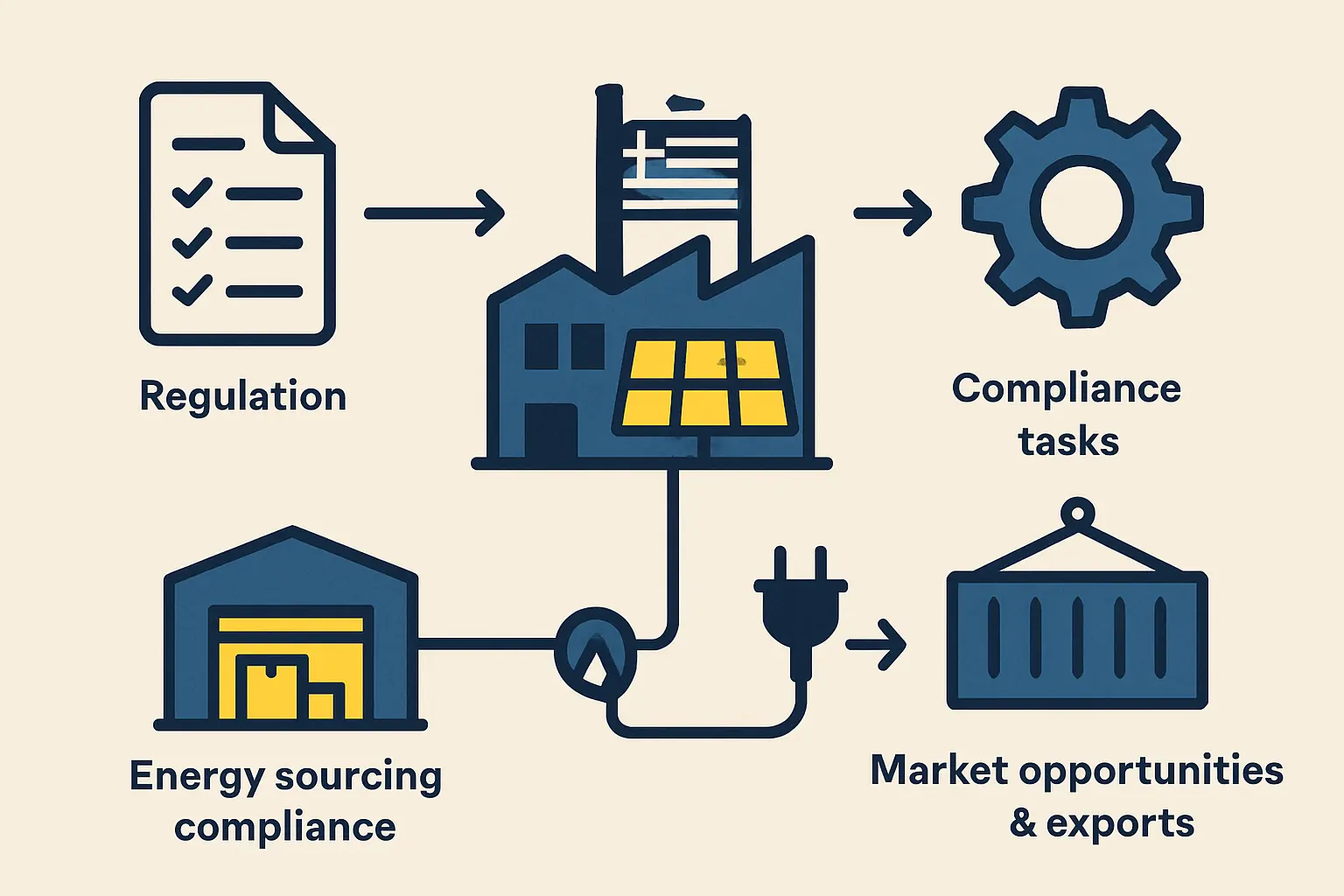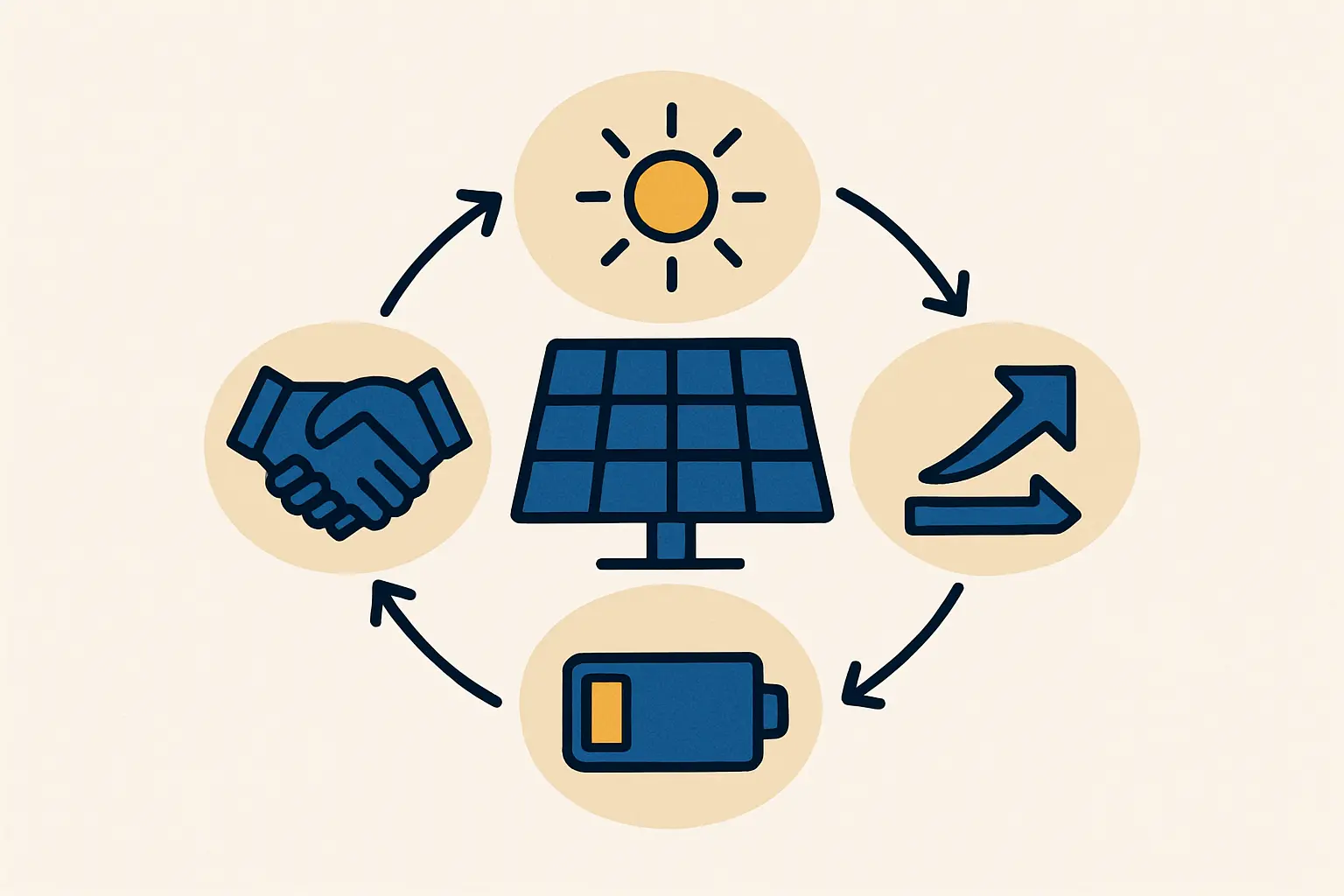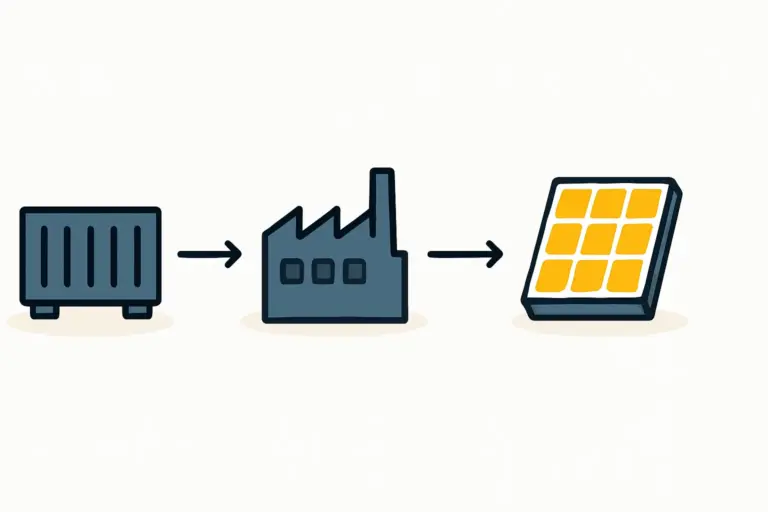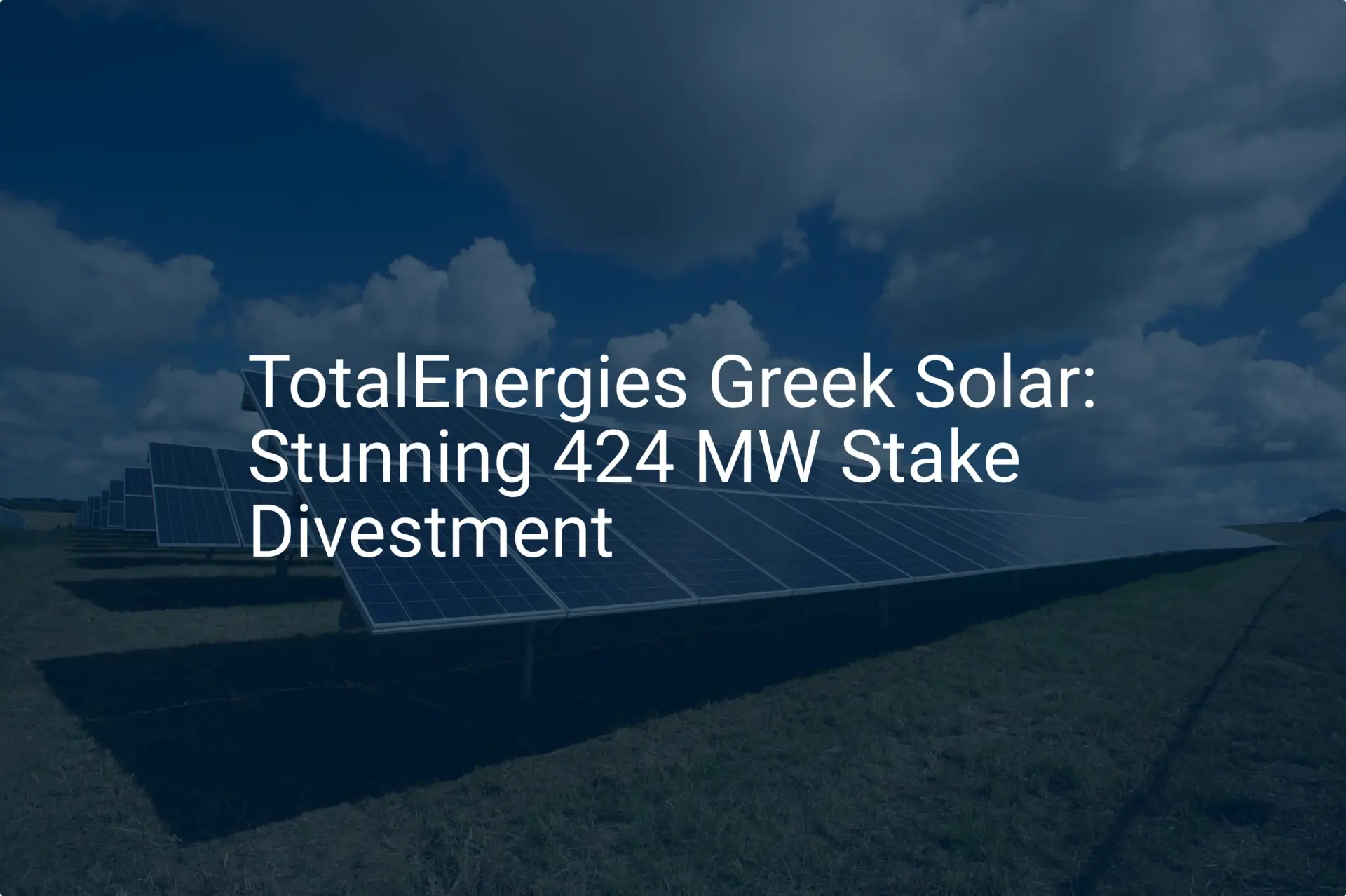An investor considering a new industry often looks for a confluence of factors: rising demand, supportive government policy, and a clear competitive advantage. For entrepreneurs looking at the solar industry in Europe, and specifically in Greece, these factors are not just aligning—they are being actively engineered by a continent-wide strategic shift.
What was once a market dominated by imports is now being reshaped by ambitious regulations aimed at building a resilient, local manufacturing base. This shift presents a significant opportunity for entrepreneurs and investors.
The European Union’s Green Deal and its ‘Fit for 55’ package are more than environmental policies; they are industrial strategies designed to create a protected, long-term market for locally produced solar modules. For a new manufacturer in Greece, understanding these policies is the first step toward building a robust business case.
The Policy Foundation: The EU Green Deal and ‘Fit for 55’
At its core, the European Green Deal is the EU’s roadmap to achieving climate neutrality by 2050. The ‘Fit for 55’ package is the concrete legislative plan to reach an interim goal: a 55% reduction in greenhouse gas emissions by 2030 compared to 1990 levels.
For the energy sector, this translates into a massive and accelerated deployment of renewable energy, with solar photovoltaics (PV) at the forefront. This ambition is quantified in the EU’s REPowerEU plan, which includes a dedicated EU Solar Energy Strategy. The goals are clear and substantial:
- Over 320 GW of installed solar PV capacity by 2025.
- Almost 600 GW of installed solar PV capacity by 2030.
These targets signal a historic expansion of the solar market, driving powerful and sustained demand for solar modules across the continent for the next decade and beyond.
Key Regulations Driving Local Manufacturing Demand
While market growth is essential, two specific EU regulations are creating a particularly favorable environment for new manufacturers within the Union. These policies address both the volume and predictability of demand.
The Net-Zero Industry Act (NZIA): A Mandate for ‘Made in Europe’
Perhaps the most direct catalyst for local manufacturing is the Net-Zero Industry Act. This regulation sets a clear benchmark: by 2030, the EU aims to have the capacity to manufacture at least 40% of its annual deployment needs for net-zero technologies, including solar panels.
In simple terms, the NZIA acts as a large-scale “buy European” incentive designed to reduce the continent’s dependency on a single source of imports and re-shore critical industrial capabilities. For an investor exploring how to start a solar factory, this act fundamentally changes the competitive landscape. It creates a structural preference for EU-made products in public procurement and simplifies permitting for “Net-Zero Strategic Projects.”
The EU Solar Rooftop Initiative: Creating Predictable, Stable Demand
To ensure stable market growth, the EU Solar Rooftop Initiative introduces mandatory installation requirements. This policy creates a predictable, long-term demand pipeline independent of large-scale utility projects. The mandates include:
- Solar panel installation on all new public and commercial buildings by 2026.
- Solar panel installation on all new residential buildings by 2029.
This regulation provides a baseline of consistent demand that a new factory can build its financial projections on, mitigating risks associated with market volatility. A comprehensive business plan for a solar manufacturing plant should account for this steady stream of demand from the construction sector.

The Greek Advantage: Where European Policy Meets Local Potential
While these EU-wide policies create a favorable environment, Greece offers a unique combination of geographic and national advantages that make it an especially strategic location.
Greece’s National Energy and Climate Plan (NECP) aligns perfectly with EU ambitions, targeting 14.1 GW of installed PV capacity by 2030. This national commitment ensures a strong domestic market for any local manufacturer.
Geography also provides a natural, cost-free asset. With an average solar irradiation of around 1,650 kWh/m², Greece is one of the sunniest countries in Europe. This ensures that panels manufactured and installed in the region deliver high energy yields, strengthening the economic case for solar adoption for end-users.

Finally, significant funding mechanisms are available to support such strategic investments. Capital from the EU’s Recovery and Resilience Facility (RRF), InvestEU, and the Innovation Fund can be leveraged to support the initial investment requirements for a solar factory.
Navigating the New Compliance and Quality Standards
The EU’s strategy is not just about quantity; it is also about setting a new global standard for quality and sustainability. New manufacturers must build their operations around these rules from day one.
Ecodesign Regulation (ESPR): Building for Sustainability
The upcoming Ecodesign for Sustainable Products Regulation will introduce stringent criteria for products sold in the EU market. For solar panels, these will likely include requirements for:
- Durability and reliability: Ensuring a long operational lifespan.
- Reparability: Designing modules that can be repaired rather than replaced.
- Carbon footprint: Mandating transparency and limits on the embodied carbon from the manufacturing process.
- Recycled content: Encouraging the use of recycled materials in new panels.
Experience from J.v.G. turnkey projects shows that incorporating these standards into the initial factory design and solar panel manufacturing process is far more efficient than attempting to retrofit processes later.
Forced Labour Regulation: Ensuring an Ethical Supply Chain
To ensure the energy transition is just and ethical, the EU has introduced a regulation prohibiting products made with forced labor from entering its market. This creates a significant compliance hurdle for importers from regions where supply chain transparency is a challenge.
An EU-based manufacturer in Greece, with a transparent and auditable supply chain, can turn this regulation into a powerful competitive advantage. Being able to guarantee an ethical “Made in Europe” product is an increasingly important purchasing criterion for public and private buyers.

Frequently Asked Questions
Do these EU policies guarantee success for a new solar factory in Greece?
No. These policies create exceptionally favorable market conditions and reduce import competition. However, success still depends on a sound business strategy, operational excellence, secure financing, and effective management. The opportunity is created by policy, but it must be seized through skillful execution.
How can a new Greek factory compete with the scale of established Asian manufacturers?
A Greek factory can compete on several fronts, not just on volume:
- Proximity: Lower logistics costs and faster delivery times to the European market.
- Policy Preference: The NZIA’s 40% target creates a protected market segment.
- Compliance: Easier to demonstrate compliance with Ecodesign and Forced Labour regulations.
- Brand Value: The “Made in Europe” label carries significant weight with many customers.
What is the most critical first step for an entrepreneur considering this opportunity?
The first step is a detailed feasibility study and a comprehensive business plan. This document must analyze the market, define the production technology, project financial performance, and outline a clear strategy for navigating the regulatory landscape. Explore the structured resources at pvknowhow.com to assist you in this crucial planning phase.
The Path Forward for Solar Entrepreneurs in Greece
The convergence of the EU Green Deal, the Net-Zero Industry Act, and Greece’s national ambitions has created a strategic window of opportunity. The regulatory framework is actively encouraging local solar manufacturing to build a secure and sustainable energy future for Europe.
For entrepreneurs and investors, this is not a short-term trend but a long-term industrial transformation. By understanding the interplay between these powerful policies and local advantages, you can position yourself to build a successful, resilient manufacturing enterprise that will power the continent for decades to come.






